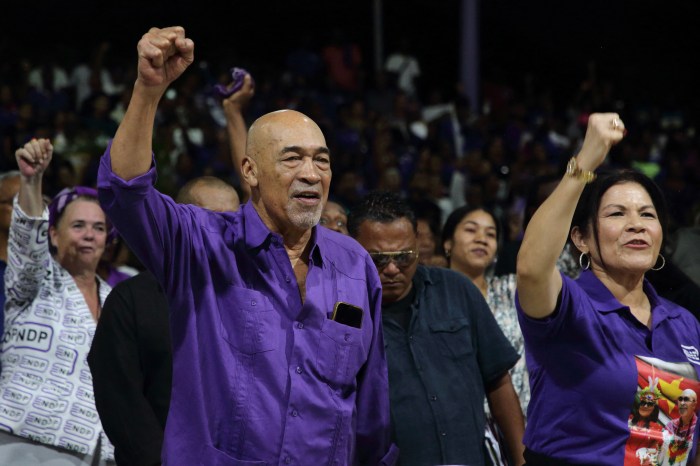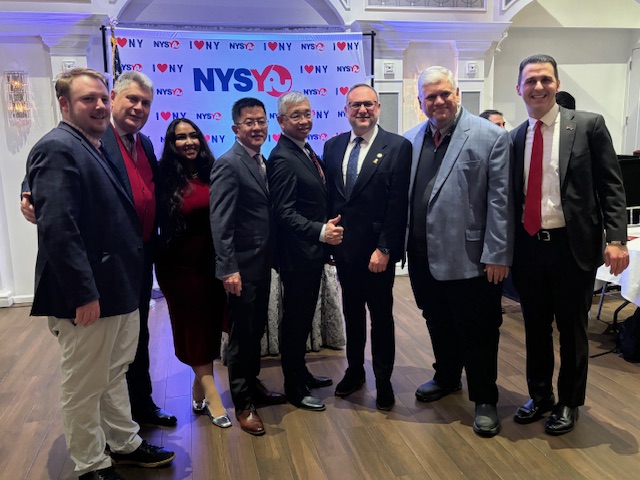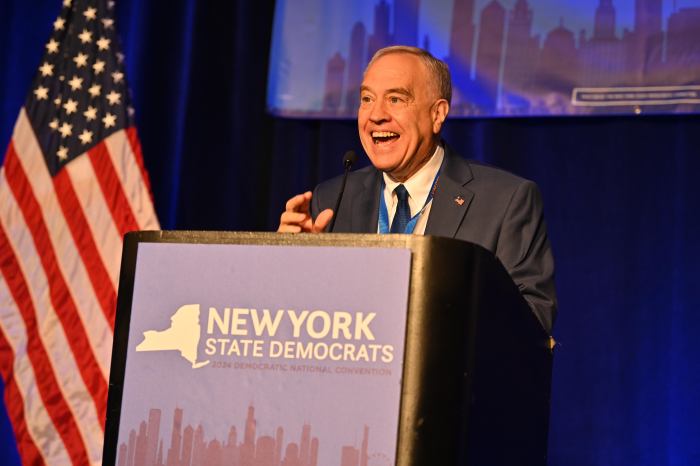University of the West Indies Chancellor Emeritus, Sir George Alleyne has expressed irritation that despite the existence of a scientific study supporting health insurance transfers across countries, CARICOM bureaucrats sat on the information without any action.
The UWI chancellor emeritus, a surgeon and professor of medicine who rose to become a two-term director of the United Nations Pan-American Health Organization, recalled that since 2002 when CARICOM heads had agreed that “the health of the region is the wealth of the region,” there was a Caribbean Development Bank-funded study on the feasibility of health insurance portability for CARICOM nationals legally working in other territories.
He said that the study revealed such transfer of health insurance coverage is easily feasible but, “that [study] has laid fallow in CARICOM now for years.”
“I am chagrined that the initial work in this area has kind of gone low down in the bureaucratic file in CARICOM,” he said following his delivery of a UWI 70th anniversary lecture in the Henry Fraser Theatre, Cave Hill Campus.
Sir George’s presentation on Sept. 5 was titled “The Perception and Place of Health in Caribbean Integration,” and his comment about the vexing matter of this study on an important aspect of CARICOM integration being left idle was in response to a question from the floor.
The question was backdropped by Barbados and seven others of the 15-member CARICOM group, during the heads of government meeting in July, signing the Protocol on Contingent Rights, which seeks to grant regional citizens the rights to social services — including health — in whichever territory they may be legally working.
But this protocol that would enable smooth travel and work is not yet in force.
The questioner, Barbados Home Affairs Minister Edmund Hinkson said that, “one of the problems is that the nationals of each country feel that their social services should be protected for nationals of that country … But clearly if we want to make a reality — and we certainly in Barbados want to — of real freedom of movement among nationals of our Caribbean countries the issue of health services and access to health services and regional cost has to be addressed and has to be actualized.”
He asked Sir George of his ideas on, “how can you move health service benefits from Trinidad or Guyana into Barbados? Do we do it through private insurance, through National Insurance Schemes?
“Do we do it at no cost so that those services are made available to Caribbean nationals who have moved freely and legitimately under the provisions of the revised Treaty of Chagauramas and other provisions relating to the freedom of movement of CARICOM nationals so they have the same access to health services as nationals of the country?”
Sir George recommended “we revisit that study because what it showed is that some of the concerns were not as real as people thought given the equivalence, almost, of many of the services and the commonality of disease patterns and the commonality of treatment schemes across the Caribbean.”
Sir George said that while the integrating of health services of regional territories to the extent that nationals can travel with their coverage to other CARICOM countries appears a daunting prospect, the CDB-funded study reveals it is a real possibility.
“You will find that when the data is examined in some detail there is less of a difference indeed for services across the region than we might imagine, given how common the epidemiological profile is across the Caribbean countries.”
Hopefully the recommendation of one of the region’s foremost health academics and advisor to CARICOM could nudge the bureaucracy into action on this vital aspect of free movement of people across this Caribbean bloc.





















